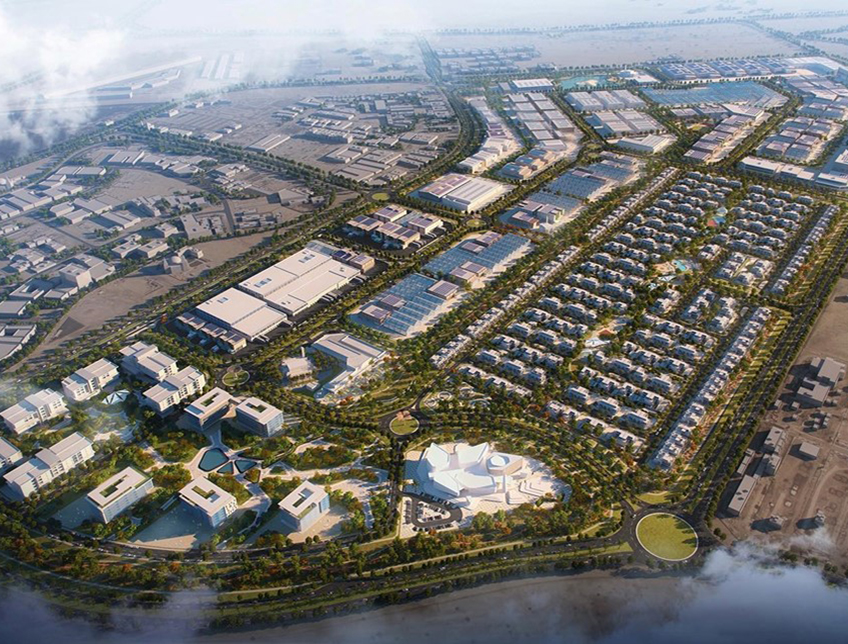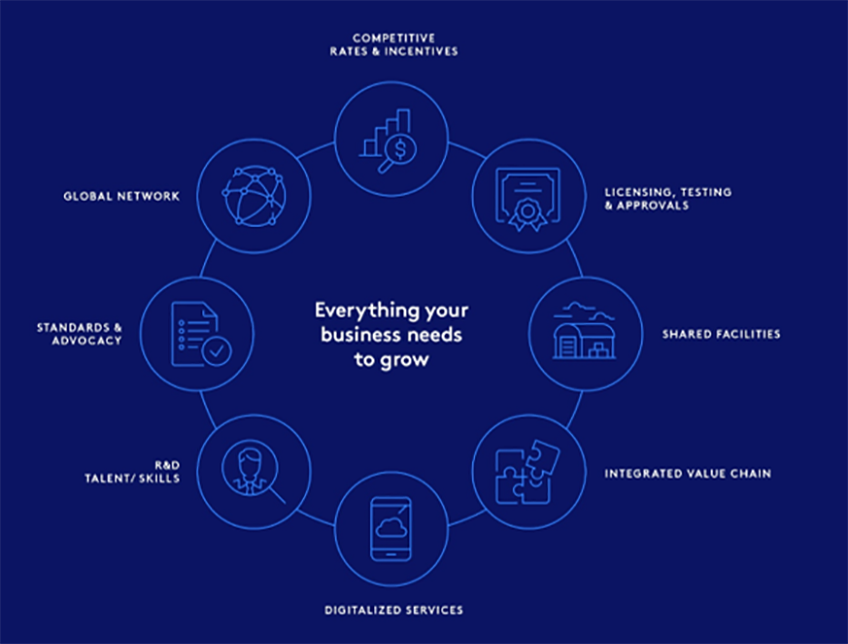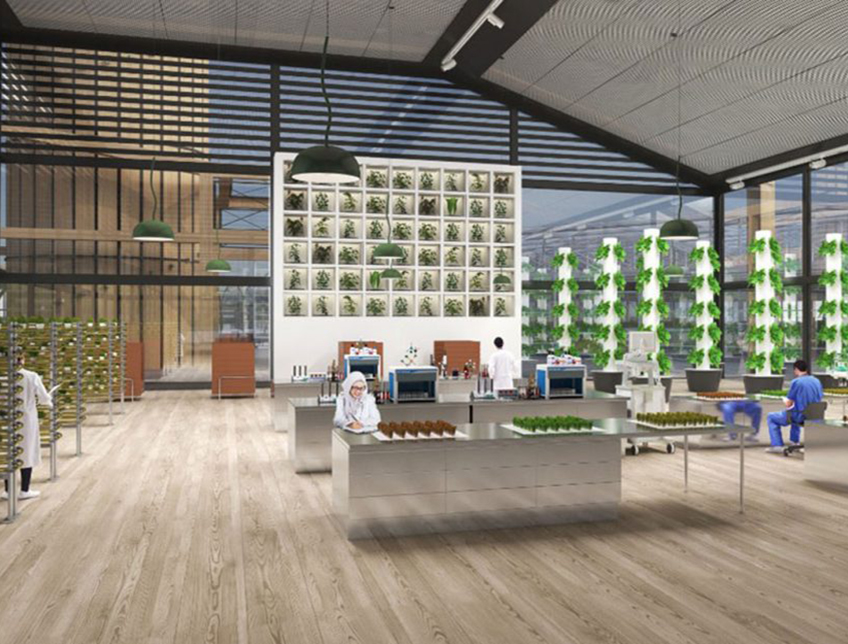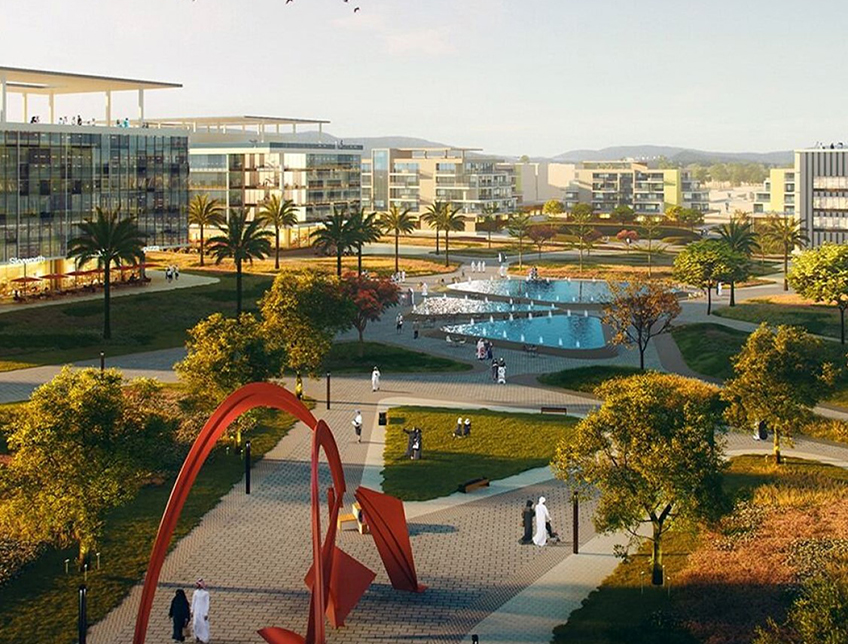
Close

Approach Words: Efficiency, Smart City, Sustainability
Public Policy Instruments: Financial Mechanism, Organization, Physical Intervention, Planning
The Dubai Food Tech Valley is a large-scale initiative in Dubai focused on the development of sustainable and innovative solutions in the food sector, uniting “the complete food and agriculture ecosystem” in one place.1 Launched by the ruler of Dubai, Sheikh Mohammed bin Rashid Al Maktoum, in 2021,2 the project seeks to enhance Dubai’s food security3 by tripling its food production through the establishment of an “integrated modern city” that acts as a global destination for the industry supported with “first-class infrastructure”, with two primary functions.4 5 First, it aspires to serve as a hub for future clean, tech-based food and agricultural products. Secondly, it acts as an incubator for researchers, entrepreneurs, startups, and industry experts involved in developing solutions that have the potential to shape the future landscape of the food industry.6 It is worth noting that the project aligns with the National Food Security Strategy 2051 objectives, focusing on diversifying the knowledge-based economy and achieving sustainability in food production.7 i

Title: Dubai Food Tech Valley aerial rendering.
Source: Click Here

Title: Key infrastructure and services offered in the valley.
Source: Click Here

Title: Interior rendering of the Food Tech Valley.
Source: Click Here

Title: Dubai Food Tech Valley business zone 3D rendering.
Source: Click Here
The Dubai Food Tech Valley master plan spans an area of 1.67 square kilometers8 and is being developed in the Warsan area of Dubai, situated between two main highways:9 Emirates Road and Ras Al Khor Road. The master plan reflects the project vision “Reimagining the potential of food”10 and encompasses four main clusters, each designed to foster innovation and development in various aspects of the food industry:11

Owner/Developer (Public)

Owner/Developer

Consultant/Designer

The project also emphasizes low greenhouse gas emissions and resource conservation rather than relying on traditional food systems. Additionally, it plans to be an incubator for Controlled Environment Agriculture Systems (CEAs), such as indoor and vertical farms.16 As such, the Food Tech Valley is expected to attract startups and small and medium-sized enterprises (SME) and target 100 small and large international companies, facilitating the exchange of knowledge and expertise in the food industry17 and setting up operations in a dynamic new Agri-Tech hub.18
The project emerges from a partnership between the Ministry of Climate Change and Environment and Wasl Properties, a real estate development firm. Emirates Development Bank (EDB) supports the project financially.19 The first phase was launched in 2021 and focused on laying the foundational infrastructure and framework for the initiative.20 Recently, Food Tech Valley signed an agreement with ReFarm TMii at COP28 to construct a 0.08 square kilometers “GigaFarm” by 2026 that will “recycle up to 50,000 tons of food waste and grow two billion plants yearly”.21
Project Link
https://www.foodtechvalley.ae/
Endnotes
References